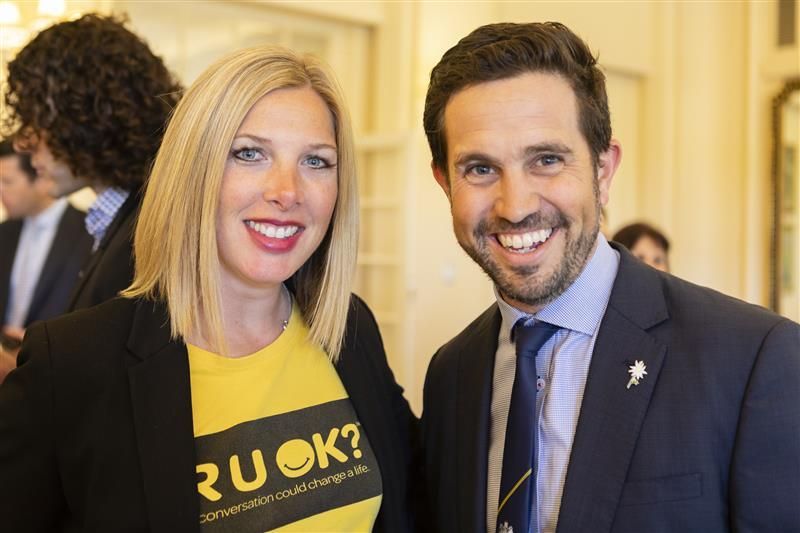Supporting someone experiencing financial hardship
Money problems can happen to anyone and financial stress is something most of us will experience at some stage in our life. Here's how you can support someone who is finding it difficult to make ends meet.

Money worries can sometimes be caused by planned life changes like buying a new home or welcoming a new member of the family. Other times it might be due to circumstances outside our control which is what we've seen during the pandemic when job losses, reduced work hours and business closures left many in financial stress.
The National Debt Helpline is a government-funded service that provides financial counselling to anyone struggling with debt and in the 2020-2021 financial year the Helpline received more than 100 thousand calls for free, confidential and independent advice.
Financial pressures can have a negative impact on our wellbeing, increase stress and anxiety, affect our relationships and contribute to people withdrawing from those around them.
Deb Shroot, a financial counsellor for the National Debt Helpline, chatted to R U OK? about some of the things we can do to support people who might be struggling with finances.
Deb, what are some of the current financial challenges people are facing?
We see people experiencing a range of financial difficulties. We speak to people who are in chronic poverty and have been struggling their whole lives. It could be because they have a long-term illness, or they can't get work, or they have a disability. We also work with people who have had a change in circumstances. They may have lost their job, had an unexpected separation or divorce, be experiencing family violence, they or someone in the family have fallen ill or someone may have passed away. That change in circumstance can put pressure on their finances.
We see people who have a lot of debt and others with a small level of debt. They may have been coping fine with this but they may have had their work hours reduced or had to go on government benefits because of pandemic and because they don't have enough resources they are struggling to repay their loan amounts.
If someone loses their job you would expect they might struggle financially but in other circumstances it might not be clear.
If someone loses their job you would expect they might struggle financially but in other circumstances it might not be clear. What are the signs people should look for that indicate someone is experiencing financial hardship?
Look out for changes in behaviour. It might be they’re declining to go out for dinner and suggesting a cheaper alternative. Perhaps they’re withdrawing their children from extracurricular activities or changing from a private to a public school. Moving house is another one. Of course, that’s not to say these things are always causes for concern. Other things to look out for are people not opening emails, not going to their letterbox or not opening bills.
The issue is that we tend not to talk about finances. There seems to be this shame associated with not making ends meet, not having enough money, not being able to provide what you want for your family. So a lot of people delay seeking help and the longer you delay seeking help, the more severe it can become, and the harder it can be to get out of it. But there are always options.
How can people meaningfully offer support without seeming nosey or prying?
If you’re having that conversation with someone, you might find they don’t open up to you straight away or they don’t want to chat specifics, and that’s fine. Respect their privacy. But you can keep communicating and ask them if it’s OK to talk about things. “Is this something you want to chat about?”, “I care about you and I am here to listen”.
You aren’t there to fix their financial problems, simply listening to them can make a huge difference. You might be tempted to give financial advice, but as well-meaning as people might be, you aren’t an expert and can end up doing more harm than good. You’re better off connecting them with an expert and being there to support them, rather than trying to do things for them. You could start with something like: “Did you know there is a government funded service called the National Debt Helpline, that has trained financial counsellors? They offer free, confidential and independent advice. Is that something you think you might be interested in?”.
What have you noticed since the pandemic started? Are more people being having financial difficulties?
What we’ve seen is there are people who have always been employed or always had enough money who are now struggling and need support due to changes in their circumstances. It can be really challenging for these people, so having friends and family around them, to support and listen to them, as well as connect them with a service, can be so important.
If I want to help someone I know is struggling , what services are available?
The National Debt Helpline website has information about different products, what to do if you’re in financial hardship and a lot of other resources.
The phone line is available Monday to Friday, 9:30am-4:30pm on 1800 007 007. It’s a free and confidential service where trained financial counsellors can outline different options of what someone can and can’t do, let them know their legal rights and potentially refer them to a more appropriate service.
There is also a live chat function on the website if people aren’t comfortable speaking on the phone. We also offer general advice to people who are calling on behalf of someone they are worried about. We can suggest some ways they can support that person.
If you or someone you know needs some extra support , visit our directory of national support and services here. For support at any time of day or night, call Lifeline on 13 11 14.





















